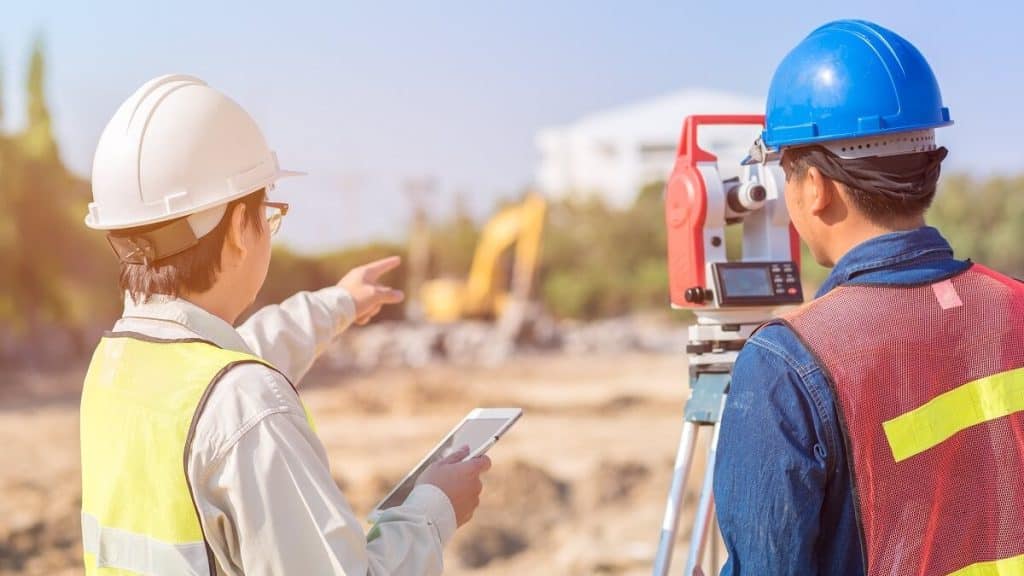Surveying is crucial in infrastructure development, assuming a pivotal role in the strategic planning, meticulous design, precise construction, and diligent maintenance of many public and private projects. This article delves into the importance of the surveying company in infrastructure development, highlighting its multifaceted contributions to creating safe, efficient, and sustainable infrastructure.
Site Assessment and Preliminary Planning
At the inception of any infrastructure project, one of the primary steps is site assessment and preliminary planning. Surveyors, often engaged by various reputable surveying companies, are tasked with collecting critical data related to the project area, including topography, geology, and environmental factors. This information is indispensable for engineers and designers to make informed decisions about the project’s feasibility, layout, and adherence to regulatory requirements. Practical surveying ensures that the project meets its intended objectives and aligns with sustainability and safety standards, benefiting the community and stakeholders.
Accurate Geospatial Data
Surveyors, through the utilization of cutting-edge technologies like GPS and LiDAR, play a crucial role in gathering highly accurate geospatial data. This data serves as the bedrock for many infrastructure projects, guaranteeing the precise placement of structures in alignment with their intended design. Utilizing such precise measurements diminishes the likelihood of errors and reduces the need for costly revisions during construction. Consequently, this approach contributes to enhanced efficiency and cost-effectiveness in executing projects. Additionally, the seamless integration of this geospatial data into the project’s digital models facilitates collaboration among various stakeholders, ensuring smoother project management and coordination.
Land Acquisition and Boundary Identification
Infrastructure development often involves the acquisition of land, which necessitates precise boundary identification. Surveyors, employed by reputable companies, skillfully establish property lines, helping project stakeholders avoid costly legal disputes, ensuring the development meets regulatory requirements, and providing a foundation for sound land-use planning. Their land measurement and mapping expertise is integral to infrastructure projects’ success and longevity.
Utility Mapping
Before commencing excavation or construction, it becomes imperative to ascertain the precise location of subsurface utilities, including water pipes, gas lines, and electrical cables. Surveyors use specialized equipment to map these utilities accurately, preventing accidents, service disruptions, and costly repairs during construction.
Construction Layout
During the construction phase, surveyors play a crucial role in setting out the project’s physical features based on the design plans. They precisely mark the positions of foundations, roads, buildings, and other infrastructure elements, enabling construction crews to work efficiently and according to specifications.
Quality Control
Surveyors continuously monitor construction activities to ensure the work aligns with the design and meets quality standards. Identifying deviations early in the process helps prevent costly rework and ensures the infrastructure is built to last.
Environmental Impact Assessment
Infrastructure projects must undergo rigorous environmental assessments to minimize their impact on ecosystems and natural resources. Surveyors provide essential data on the project’s surroundings, facilitating informed decisions that balance development with environmental preservation.
Infrastructure Maintenance and Monitoring
Once infrastructure is in place, surveying remains critical for ongoing maintenance and monitoring. Surveyors conduct regular inspections and assessments to identify structural issues, erosion, or other factors that may compromise the integrity and safety of the infrastructure.
Improving Transportation Networks
Surveying is instrumental in developing transportation networks, including roads, highways, and railways. Accurate data on terrain, existing structures, and traffic patterns enable engineers to design efficient and safe transportation systems that facilitate economic growth and connectivity.
Enhancing Public Safety
Infrastructure development must prioritize public safety. Surveyors contribute to this by ensuring that infrastructure projects adhere to safety regulations and structures are built on stable ground. Their work minimizes the risk of accidents and disasters that could harm communities.
Supporting Urban Planning
In rapidly growing urban areas, surveyors help shape the landscape by providing critical data for urban planning and development. They are pivotal in optimizing land use, managing resources, and creating sustainable urban environments.
Facilitating Water Management
Accurate surveying is crucial in infrastructure projects associated with water resources, including dams, reservoirs, and flood control systems. Surveyors help determine water levels, flow patterns, and potential flood risks, contributing to effective water management and disaster mitigation.
Power and Energy Infrastructure
Surveyors are indispensable in developing power and energy infrastructure, including power plants, transmission lines, and renewable energy projects. They ensure these facilities are strategically located and efficiently interconnected to meet energy demands.
Conclusion
Surveying, often the unsung hero in the world of infrastructure development, plays an indispensable role. Its purview encompasses everything from initial site assessment to ongoing maintenance, significantly influencing infrastructure projects’ safety, efficiency, and sustainability. Without the precise data and expertise offered by a reputable surveying company, the construction of roads, buildings, utilities, and transportation networks would be fraught with errors and inefficiencies. Hence, surveying remains an essential discipline underpinning the growth and development of the modern world.
